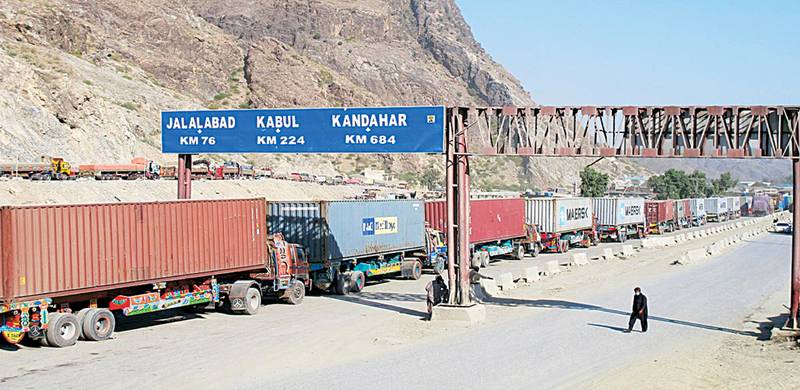
Peshawar
The government of Khyber Pakhtunkhwa (KP) has approved the two-lane Peshawar to Torkham Motorway as part of its efforts for the economic uplift of tribal districts.
KP Minister for Finance Taimur Saleem Jhagra informed Naya Daur that the Executive Committee of the National Economic Council (ECNEC) had approved the Khyber Pass Economic Corridor (KPEC) project.
Recently, a Transit Trade Management System at the Torkham Border was inaugurated at Torkham Border, aiming to allow round-the-clock trade between Afghanistan and Pakistan.
The Peshawar-Torkham motorway would further facilitate containers carrying vehicles to travel from Karachi to Khyber. With a motorway to Multan from upper Punjab being completed along with the Karachi-Hyderabad Motorway, traders would soon have a swift and secure link from the port city of Karachi to the Torkham border in the north.
Jhagra also stated that the $400 million investment would create 100,000 local jobs and would increase local connectivity.
The provincial finance minister further said that the Khyber Pass Economic Corridor was certainly not a ‘Road to Nowhere’ because it would increase local imports to Afghanistan and create investment opportunities all over KP.
The KPEC will link Pakistan, Afghanistan and Central Asia and boost regional connectivity, allowing for the greater exploration of trade opportunities.
Better connectivity would also increase the economic viability of a number of other projects including the China Pakistan Economic Corridor sponsored Rashakai Special Economic Zone located at the Nowshera-Mardan Road.
Jhagra further said that the KPEC would economically benefit the whole of Khyber Pakhtunkhwa and the export-focused industry across Pakistan.
He added, “To transform Pakistan, we need to act bold, fast and have to dream bigger; our security is economy and let's work hard to transform it.”
The government of Khyber Pakhtunkhwa (KP) has approved the two-lane Peshawar to Torkham Motorway as part of its efforts for the economic uplift of tribal districts.
KP Minister for Finance Taimur Saleem Jhagra informed Naya Daur that the Executive Committee of the National Economic Council (ECNEC) had approved the Khyber Pass Economic Corridor (KPEC) project.
The Economic corridor would include a 47.55 km long two-lane motorway which would boost trade between Pakistan and Afghanistan.
Recently, a Transit Trade Management System at the Torkham Border was inaugurated at Torkham Border, aiming to allow round-the-clock trade between Afghanistan and Pakistan.
The Peshawar-Torkham motorway would further facilitate containers carrying vehicles to travel from Karachi to Khyber. With a motorway to Multan from upper Punjab being completed along with the Karachi-Hyderabad Motorway, traders would soon have a swift and secure link from the port city of Karachi to the Torkham border in the north.
The corridor would increase exports to Afghanistan and would transform the economic environment of Khyber district by providing an easy path for transporting products to Afghanistan.
Jhagra also stated that the $400 million investment would create 100,000 local jobs and would increase local connectivity.
The provincial finance minister further said that the Khyber Pass Economic Corridor was certainly not a ‘Road to Nowhere’ because it would increase local imports to Afghanistan and create investment opportunities all over KP.
The KPEC will link Pakistan, Afghanistan and Central Asia and boost regional connectivity, allowing for the greater exploration of trade opportunities.
The motorway from Peshawar to Torkham will complete Pakistan's north-south connectivity from Karachi and Gwadar to the country's busiest land crossing point in the north at Torkham Border.
Better connectivity would also increase the economic viability of a number of other projects including the China Pakistan Economic Corridor sponsored Rashakai Special Economic Zone located at the Nowshera-Mardan Road.
Jhagra further said that the KPEC would economically benefit the whole of Khyber Pakhtunkhwa and the export-focused industry across Pakistan.
He added, “To transform Pakistan, we need to act bold, fast and have to dream bigger; our security is economy and let's work hard to transform it.”
